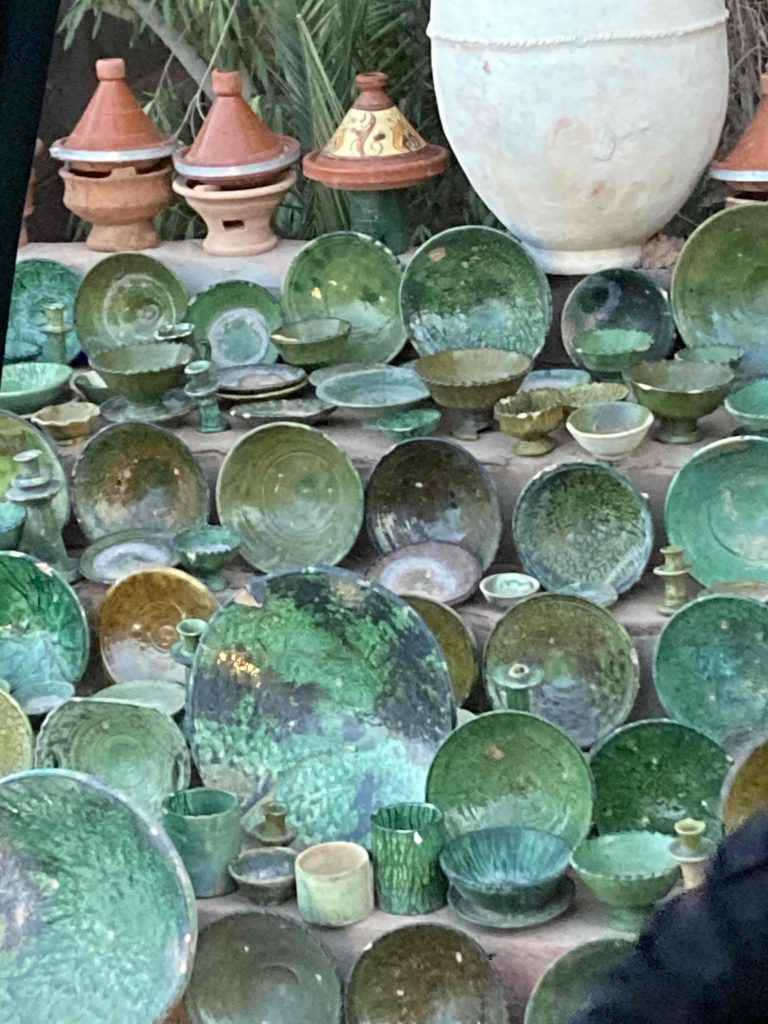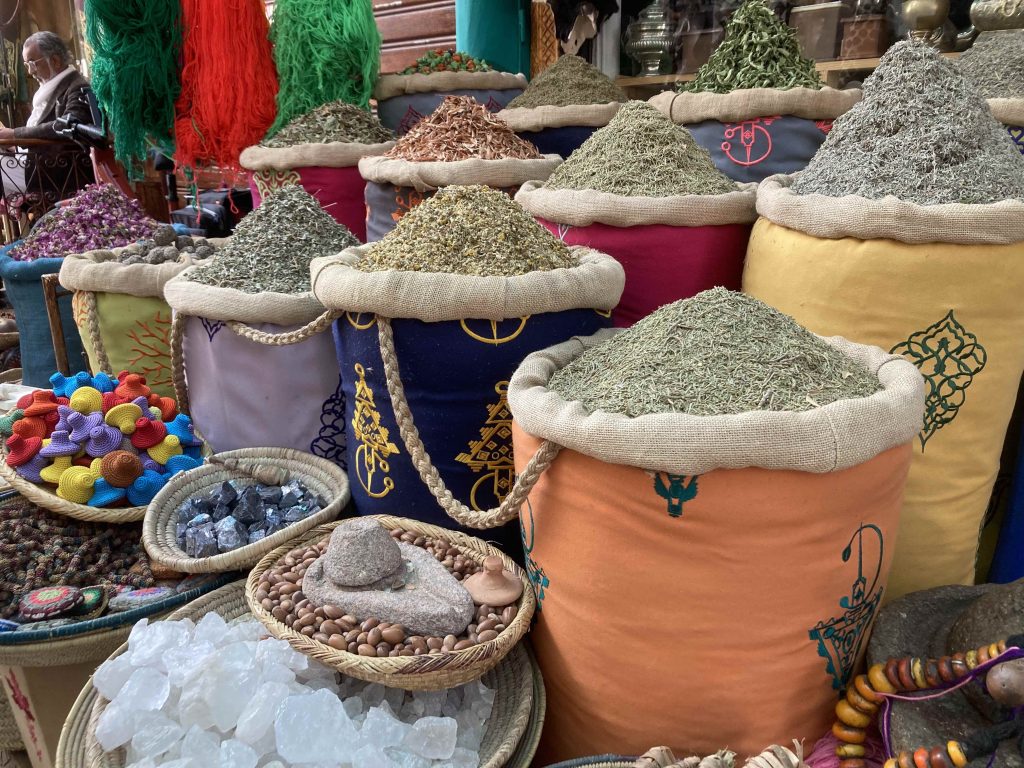(Update: Many thanks to the folks at No Sidebar for publishing this piece today.)
Lovely objects still turn my head, even long after I’ve become a minimalist.
This surprised me at first. Shouldn’t I be over all those shopping urges by now?

It was disappointing to realize that I’d have to keep returning to the scales, balancing a potential purchase against my newfound freedom from stuff. But revisiting why I became a minimalist in the first place, and all the ways I’m benefitting from my uncluttered life, is a very helpful exercise that helps me to resist the call of beautiful things.
My husband and I sold almost everything and launched into a fully nomadic life in the summer of 2023. The few things we kept are in two places: in a couple of small, neat rows of boxes in a friend’s basement, and right here with us, in a carry-on suitcase and backpack each.
That’s all we own, and I love it. I wondered before we began traveling: Would I miss my things? Would I miss, simply, things? I’ve learned that no, I really don’t, and I don’t need a lot, but I’ve also found that beautiful objects still have a siren song. This lesson especially came home to me in Marrakesh.

A lot of people travel to Marrakesh for the express purpose of wandering through the old medina, surrounding themselves with beautiful things to buy. Just the magnificent displays of goods can stop you mid-stride, transfixed. I had already been a full-time traveler for several months when we reached Morocco, and I thought I had achieved immunity to shopping urges. But–Marrakesh! The handwrought silver, the carved wood, the butter-soft leather, the loom-woven wool, the embroidered cloth. Gorgeous things, stacks and stacks of reasonably priced handiwork, spilling into the narrow streets. There was also, it must be said, a lot of junk cheaply produced in factories. That stuff was no problem to resist–but the items handcrafted by artisans were another matter.
I had more than one occasion while walking along, enjoying the kaleidoscope, when I would recognize something beautiful–though I’d never been to Marrakesh before. What I was recognizing was the certainty that in my former shopping-heavy life, I would have bought that object. I would have selected it from the world of things, made space for it in my suitcase, found its spot in my home, and then managed it in my large inventory of objects for many, many years. I might have told a story about it. I might have professed to love it.
But none of that happened. I stepped away, kept moving, and the desire for the object dissipated. I returned to my simple, minimalist life with the Moroccan dirhams still in my wallet and my hands free. It is an unfettered happiness to escape from the call of things.
Keeping the following three questions in mind helped me to stay on the minimalist path that brings me so much joy. Whether you, too, are a minimalist traveler, or someone staying true to a vision of an uncluttered and peaceful home, these questions are useful.
- Do I want it forever? Instead of my old strategy of imagining a potential purchase for the next few days (for example, how I would fit it in my suitcase), I pause to imagine the rest of its lifetime. I’m potentially adding this object to the rest of my life. I found new homes for a huge amount of stuff once already, and it was a big, time-consuming, emotional task. This arms me to resist taking on more stuff and ever facing that chore again. Minimalism begets minimalism.
- Does the planet need this thing? A purchase isn’t as personal as it feels in the moment. Everything we buy, even a carefully wrought item, is contributing to the cycle of production and consumption of things. Often this reminder is enough to reframe a purchase and help me recall that I’d like to reduce my participation in a cycle that’s already running at warp-speed.
- Does my self-expression need this thing? I can have a good eye, excellent taste, an appreciation for beauty, and I can possess these qualities without buying a single thing. My self-expression doesn’t have to result in a purchase. What I read, what causes I support, what I pause to truly look at, and how I interact with my fellow human beings–these are the ways I express myself.
I needed to ask myself these questions often in Marrakesh–enough for me to realize that, unfortunately, I’m not arriving any time soon at a point where I’m no longer tempted by lovely objects. Beautiful things might always call to me from their shelves. But also, each time a thing stayed in its shop and I walked away, I was a little more free. The world is full of beauty, and for me, a life without a lot of stuff allows me to see it.
Thanks for reading, and by the way, I love comments. Bookmark fieldtripnotebook.com for more on self-guided journeys, minimalism, and life of full-time travel. For daily postcards from, well, wherever we are, subscribe to launaatlarge.substack.com. Justin’s insightful writing on personal finance, early retirement, and minimalism is at Living the FIgh Life.

Thank you for this wonderful article!
Ulrike, thank you for reading! Be well.
This is very hard for me. I love beautiful, handmade things. And, I love to support small businesses, especially women. It makes me feel good to support these artisans. And I enjoy talking with the artists and business owners, and that feeling of connection when I purchase something.
Kim, you make a great point. I want beautiful art to exist, and I want small minority-owned and women-owned businesses to exist. Someone needs to buy what they are selling. I think for me it’s a matter of scale. I used to buy so much–maybe I was trying to keep ALL the little businesses going, I don’t know. Now I buy precious little, and I trust that others will buy–rarely–the one beautiful object that will have meaning for them vs. buying a lot of clutter like I used to do. I might still be looking for that golden mean. Good food for thought. Thanks for commenting.
I love your writing, and what you say.
Love you, Dad. <3